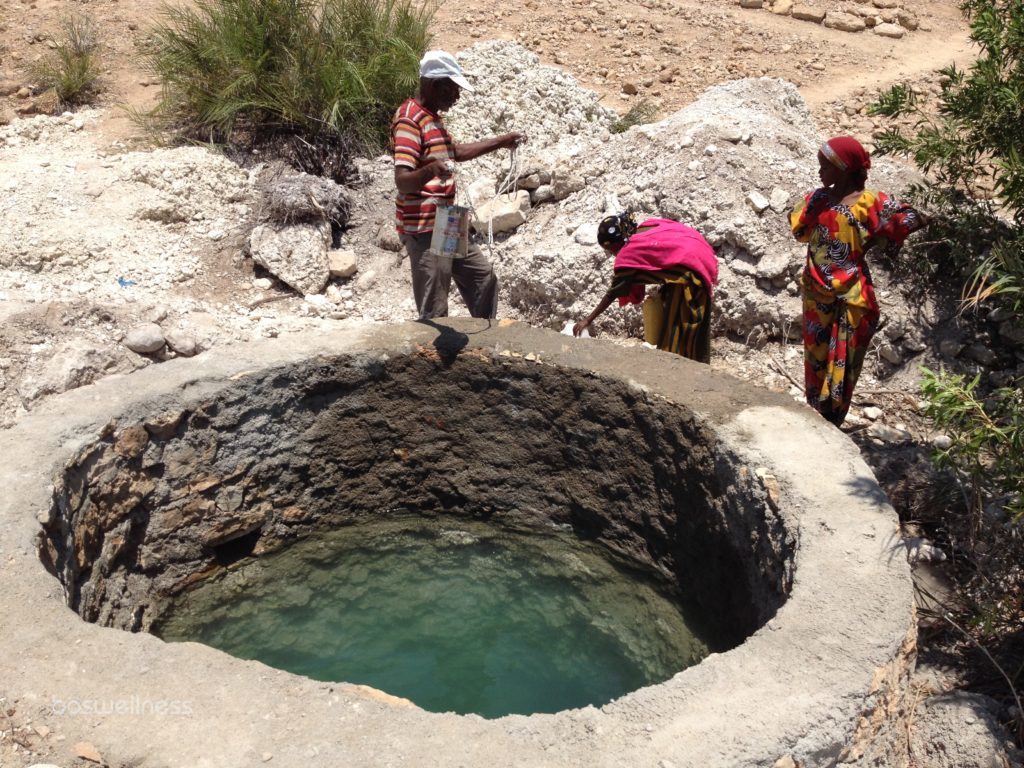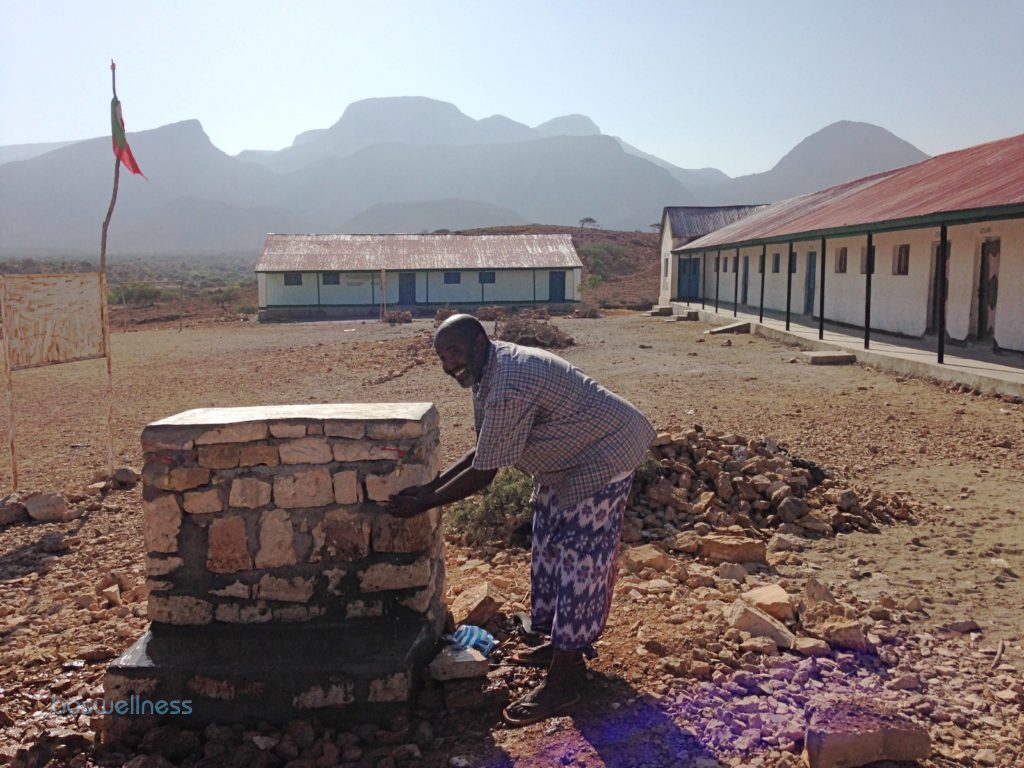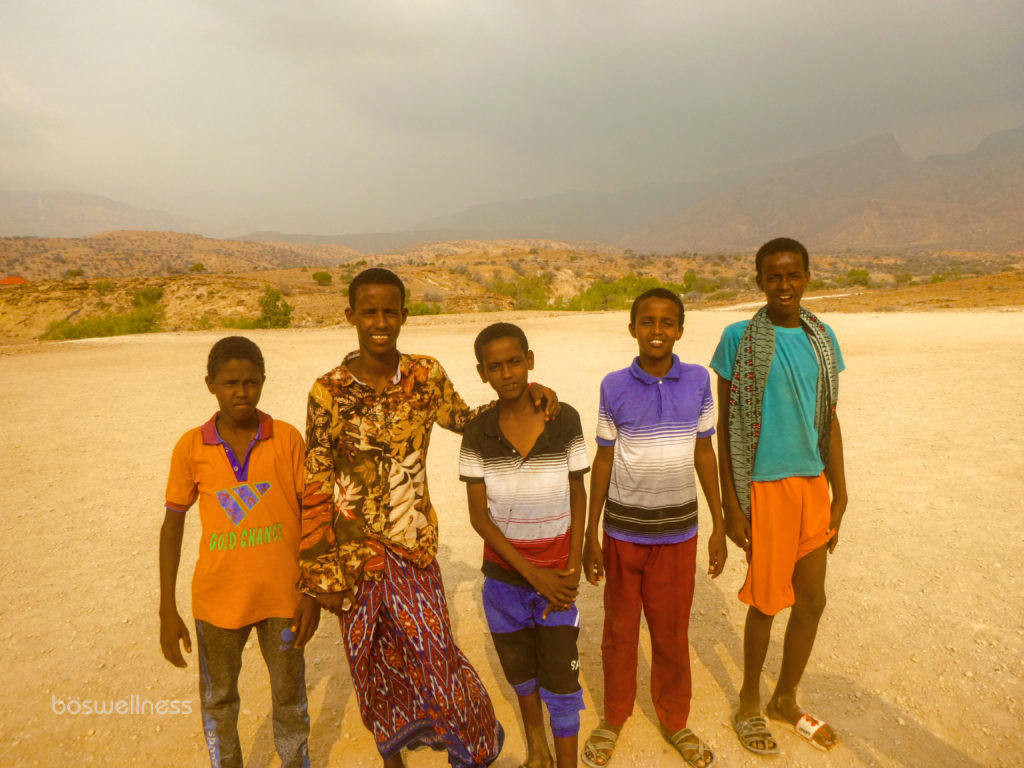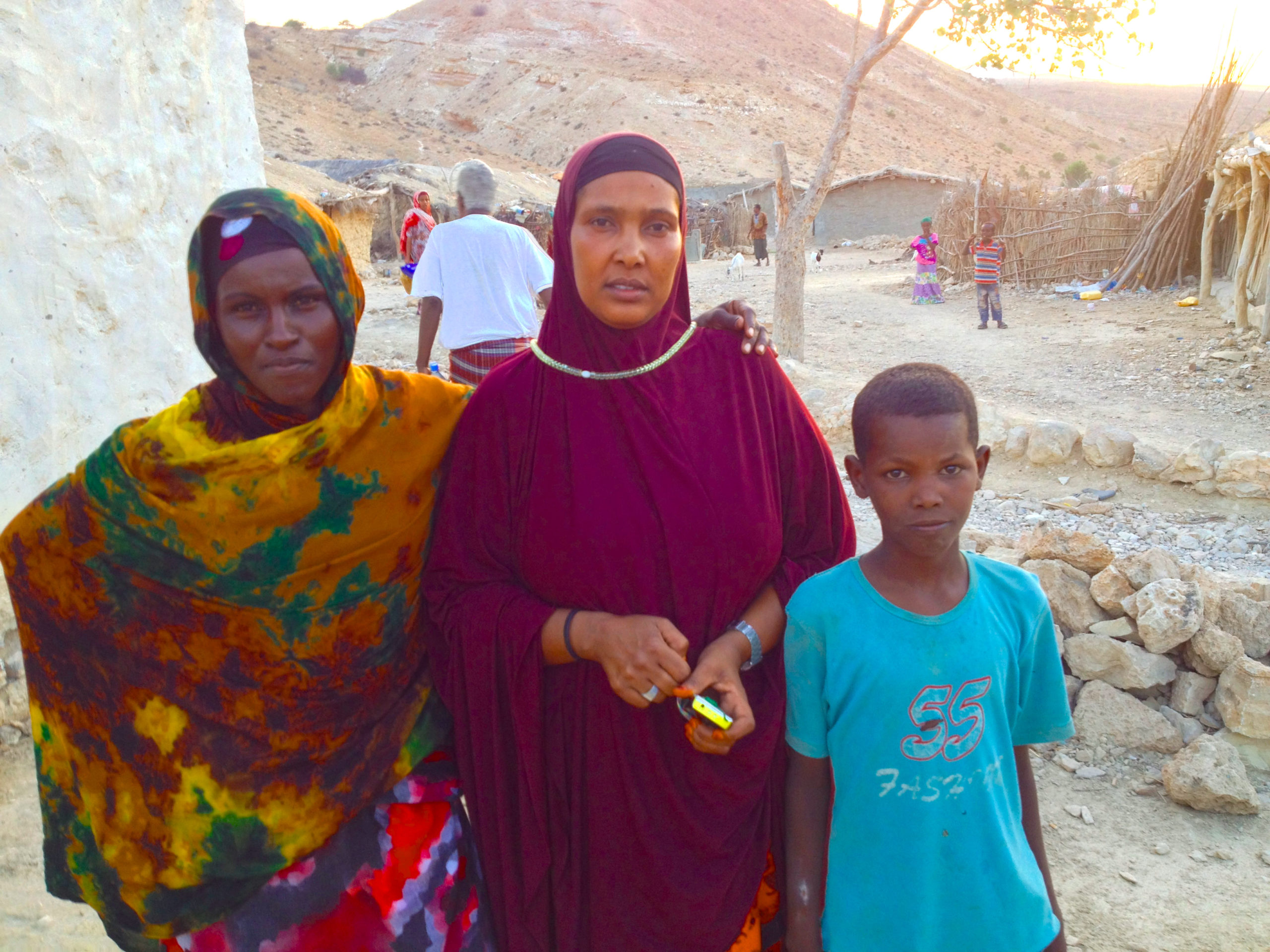
“It is every man’s obligation to put back into the world at least the equivalent of what he takes out of it.”
– Albert Einstein
Since the beginning of our business, our goal has been to make a positive impact in Somaliland. From paying the harvesters a higher price for their resins to investing in clean water access and sustainability initiatives, our work here continues. We’ve pledged 20% of our gross revenue towards these community impact projects.
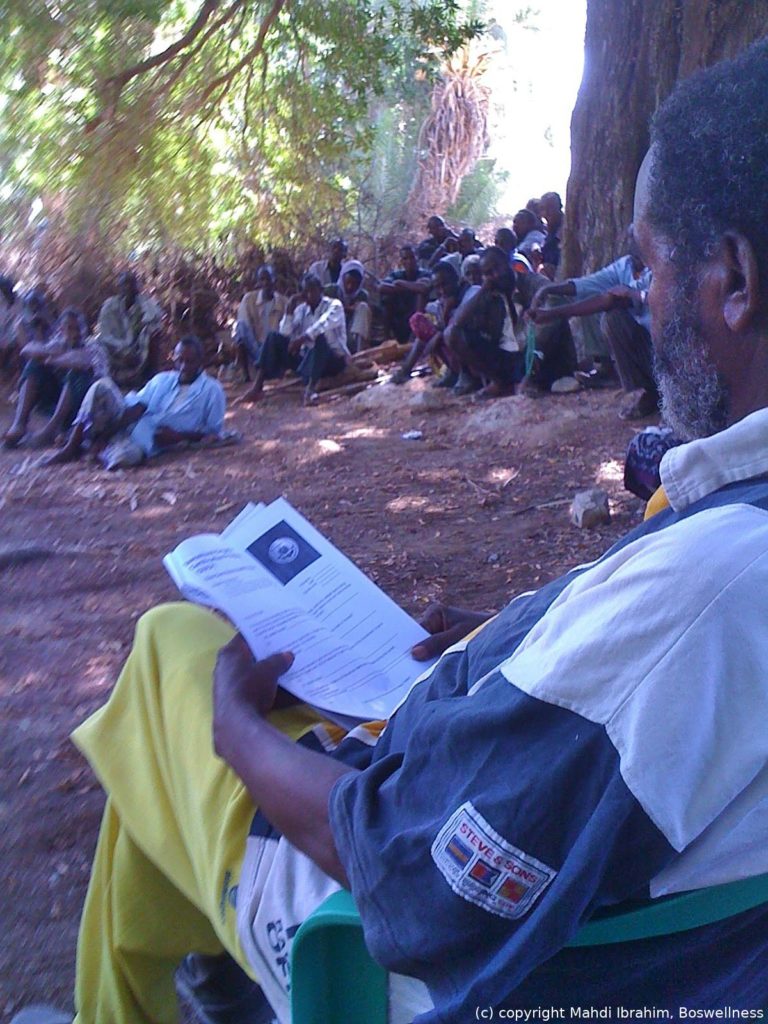
Organic Certification
Boswellness organized organic certification trainings, including harvesting and handling best practices, to become the first company offering certified organic frankincense in the world. In addition to the higher prices we were already paying them for their resins, this certification helped harvesters add value that foreign markets were seeking. Organic certification is maintained through strict annual inspections of methods including but not limited to harvesting, shipping, and manufacturing at both harvesting regions in Somaliland and our distillery in the US.
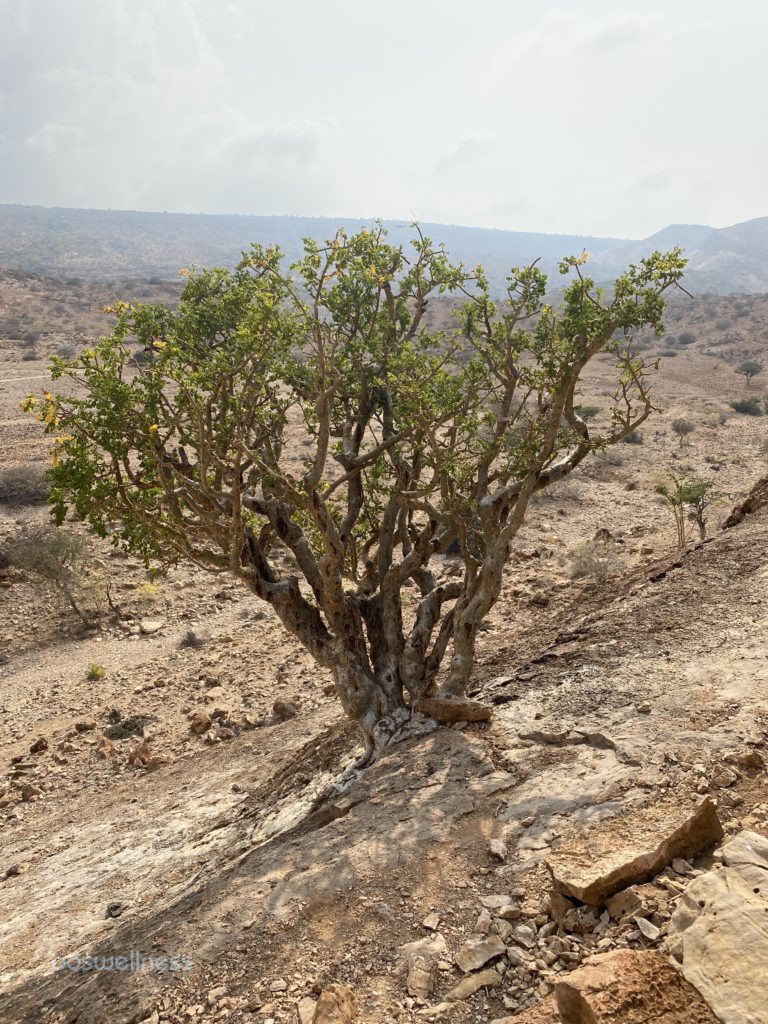
Tree Health Research and Sustainable Harvesting
We commissioned our first tree health assessment in 2010. Prior to all of the sensationalism around the disappearing frankincense trees, Boswellness was interested in learning more about the history and longevity of these trees as well as the symbiotic relationship between tree and harvester. To continue this work, we’ve partnered with the Centre for Frankincense Environmental and Social Studies (CFESS). CFESS is currently conducting a multi-year study on the health of the Boswellia forests in Somaliland, as well as sustainable harvesting methods. As a Somali-led organization, they uniquely understand the language, culture, and landscape of the harvesting region, which are all critically important to conducting authentic research in Somaliland.
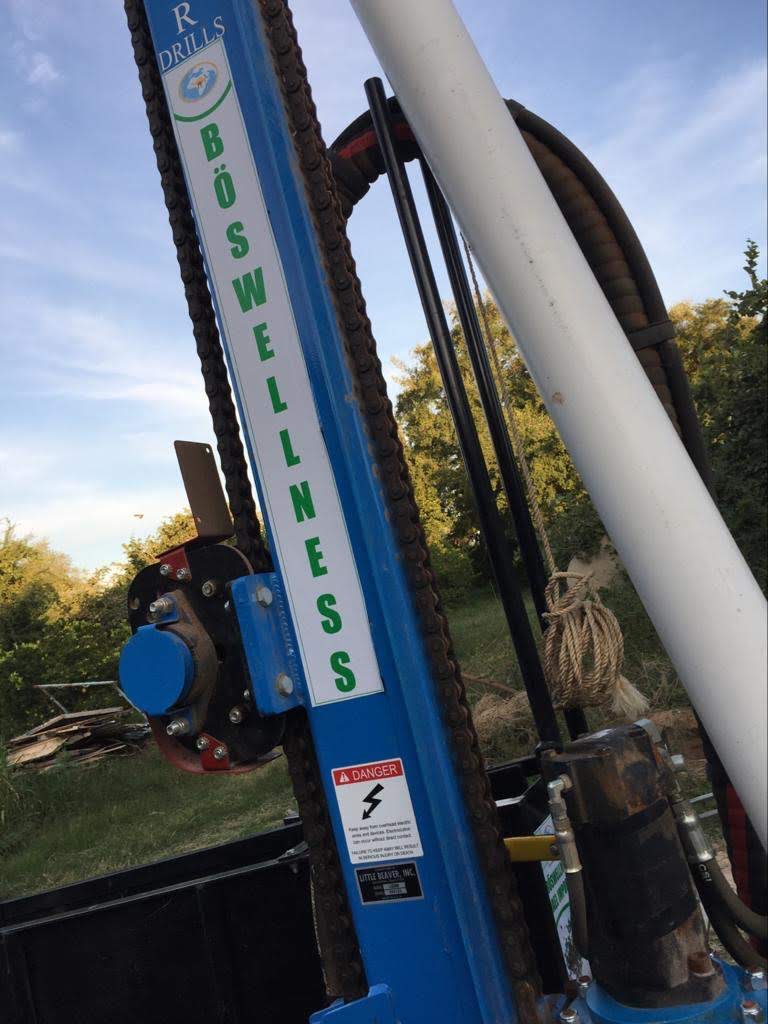
Water Access
Our biggest project to date has been the installation of solar powered wells in villages. Typically, the job of procuring water every day falls on the young girls in the family. In this rocky, dry terrain, potable water can be hard to come by, and so these young girls have to walk several kilometers each day to fill and then carry heavy jugs of water. When we engaged with the communities asking what their needs were, water was by far the most requested. So, we purchased all the materials needed to build wells, including a hydraulic drill rig, and got to work.
